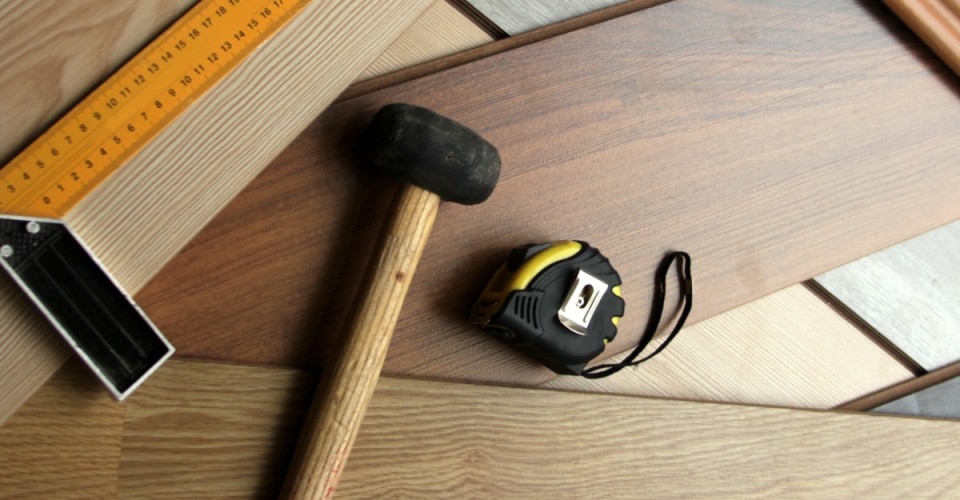Whether you’re adding to your home, need a small home improvement task completed, or preparing for a remodel, there will come a time when you need to call in and communicate with your contractor. A contractor is a great asset for your home project. They have connections to vendors and subcontractors to get your project done. They also have experience in working with your type of home. But before you just hire any contractor, you need to make sure you’re working with a reputable provider. Making good hiring decisions can make a difference in terms of safety, budget, and stress.
1. Know the types of contractors
A contractor is a professional for whom you can contract to perform a job. There are many types of contractors based on the type of labor or project they perform. For example, there are closet contractors, concrete contractors, quality contractors, roofing contractors, swimming pool contractors, etc. If you’re looking for a specific task to be completed, like drywall, look for a drywall contractor. If you need to remodel a whole room, like a kitchen, you can search for a kitchen renovation contractor, remodeling contractor, or a commercial general contractor. Or, if you’re moving around, find a reputable moving company. Always make sure that whatever contractor you choose is trained and licensed to do all the specific tasks.
2. Check licensing
Never hire a contractor that doesn’t have a license with the state. Most states require that a license be obtained by any contractor performing work valued over $500. Licensing is important as it means that your contractor is well-versed in current building codes, safety policies, disposal of hazardous materials, labor and hiring, and permitting. A reputable contractor should be able to show you a physical license during your initial conversation if it is required for the work they want to take on. If they can’t, you may want to consider other options.
3. Verify bonding and insurance
Bonding means that the homeowner has some assurances of being financially protected or reimbursed from work that is incomplete, personal property is damaged, or subcontractors that weren’t paid. Every state and jurisdiction has different requirements as well as varying minimums, so it’s best to check with your local state requirements. For a contractor to be bonded, they usually must undergo a series of requirements by the bonding company, so it can be perceived as a level of assurance if a contractor has been reviewed in some capacity. In some states, in order to be licensed, a contractor must also carry a minimum surety bond.
Insurance is a means of protecting the contractor, and homeowner, against liability and accidents. Similar to car insurance, a contractor who injures themselves, your home or property, or gets into an accident on the job, will have the insurance to cover damages. If you hire a moving company, confirm whether it includes protection for your belongings in case of damage or loss during the move. During the initial meeting with your contractor, ask to see the bonding and the dollar amounts of both (if required) so you can ensure your project is covered.
4. Don’t go by price
You will get a lot of estimates from contractors, but don’t let price be the deciding factor. If you go with the cheapest, you could be getting the cheapest work, literally. Also, avoid any estimates that are substantially lower than the rest of the pack. Often this means they do things to cut costs, such as using unskilled subcontractors or buying used equipment and supplies. Get several estimates and make sure they are itemized (time, materials, permitting costs, etc.) so you can compare various quotes fairly. And don’t be afraid to question costs: it’s okay to ask why certain items are priced higher than a competitor. You may find that the higher cost is worth the money, or it’s an opportunity for you to source materials on your own.
5. Pick contractors with solid crews
Contractors do a lot of work themselves, but they also hire subcontractors for areas they aren’t experts in, such as plumbing or electrical. Not only will your contractor need licensing, but the subcontractors should be licensed and insured where applicable too. Make sure the contractor you work with has a set team of subcontractors they use and they know their work well. If they hire out just anyone to do the job, that means you don’t know the quality you’re receiving, and neither does your contractor. Ask how often they’ve all worked together, and be sure to clarify how to communicate with the subcontractors if needed.
6. Ask for referrals and follow up on them
Before recruiting a contractor, ask for referrals from the contractor and actually call the homeowners and see what they have to say about the contractor you’re hiring. Talk about price and whether or not the contractor stayed on budget. Discuss how long the project took and if it was in the timeframe given by the contractor. Inquire about the contractor’s style of communication and being able to convey how the project was going. The more detailed information you get from past clients, the more you’ll know what to expect.
7. Get a detailed, written estimate from the contractor
Never take an estimate over the phone or a verbal estimate in person. You want a written estimate that is detailed, including supplies, labor, etc. The price should be broken down as much as possible so you know where your funds are going. Also, make sure the contractor includes all prices, as you’ll need an accurate estimate if you plan to take out a loan. A quality contractor will submit a formal quote or proposal to the homeowner, have the homeowner sign the quote, and submit any required down payments.
After a project has been completed, a final invoice will be submitted to the homeowner requesting payment within a specified time period. Some companies opt for invoice generator for creating an online invoices. If there have been any additions, alterations, or changes between the initial proposal and the final invoice, a revised proposal should always be part of the process. This paper trail will enable the homeowner to keep track of expenses.
8. Watch the down payment
Depending upon the project, you may be required to pay a down payment or deposit for the work. A small electrical project may only require payment at completion. A large kitchen remodel may require a deposit. According to the National Association of the Remodeling Industry, “Receiving some sort of down payment at signing is a good practice to ensure a customer’s sincere intent to do the project. A payment schedule should be part of the contract language. Typical down payments are 25% to 33%, sometimes even higher depending on the type of work being done. A down payment is highly recommended when products have to be ordered by the contractor immediately.” You may be able to negotiate the percentage of the downpayment; ask your contractor how flexible they are with this. Never pay 100% of the costs upfront.
9. Communication is key to success
Like any project, miscommunication between people can ruin the pleasure of a completed project. Setting appropriate expectations for how to effectively communicate with your contractor will be key to not only enjoying the end result but wanting to recommend your contractor for other projects. Setting the right tone from the beginning is important. Be clear in your expectations: Do you want regular weekly meetings to discuss the timeline and budget? Do you want to be part of the selection process for materials and supplies, or are you more hands-off? Do you need to be presented with a good/better/best scenario for every decision, or do you trust the contractor’s judgment? Knowing yourself and how you like to communicate is half the battle.
Even small miscommunications can leave a bad taste for the overall feeling of the project. If, for example, you don’t want any of the crew to use your bathroom facilities, you need to make sure to bring this up right from the beginning so that expectations can be met.




